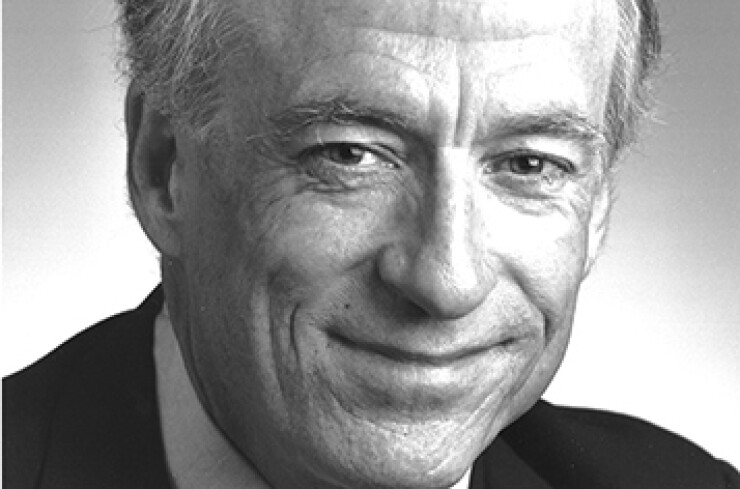
Transit officials and advocates recalled Robert Kiley as a savvy manager who helped lead New York City's subway and bus system out of its systematic decay.
Kiley, whose seven-plus year tenure in charge of the Metropolitan Transportation Authority is its longest, died Tuesday in Chilmark, Mass., at age 80. His family cited complications from Alzheimer's disease, according to several news reports.
He was MTA chairman from November 1983 to January 1991. He also ran transit systems in Boston and London.
"Kiley was a central force in the rebuilding of New York's transit system," Mitchell Moss, director of New York University's Rudin Center for Transportation, said in an interview. "He was able to build upon the great work of [Gov.] Hugh Carey and Dick Ravitch."
Kiley, who interrupted a run for Boston mayor to take the New York job, succeeded Ravitch as chairman after the latter obtained the initial $8 billion, five-year capital program from state lawmakers. Kiley, whom Mario Cuomo appointed after replacing Carey, was able to double the commitment and focused on the network's core "invisible" infrastructure such as trains, buses, track, signals, and thousands of subterranean components.
"Mario Cuomo and Kiley made a terrific team," said Moss.
Under Kiley's watch, the MTA removed graffiti, long symbolic of disorder throughout the transit system. Kiley was also instrumental is advancing New York City Transit's fare collection system from tokens to the MetroCard.
"He assembled a team and created a vision that brought the transit system back from the brink of disaster," current MTA chairman Thomas Prendergast said in a statement.
Peter Stangl succeeded Kiley in 1991. Cuomo named Kiley to the New York State Financial Control Board, an oversight panel formed during the city's 1975 fiscal crisis that still functions as a monitor.
As president of the business group Partnership for New York City in March 2000, Kiley wrote then-Gov. George Pataki urging adequate funding of the MTA's capital program.
"In sum, it is our conclusion that the plan not only does not fund new capacity, it threatens the ability of the MTA to continue its state of good repair program for this and future plans," the letter said, according to a Bond Buyer article at the time. Straphangers Campaign chief spokesman Gene Russianoff and union leader Sonny Hall also signed the letter.
Kiley was born Sept. 16, 1935, in Minneapolis and graduated from the University of Notre Dame. He worked for the Central Intelligence Agency before his arrival in Boston under Mayor Kevin White's administration.
White, who governed the city during a transitional period from 1968 to 1984 that included a downtown construction boom, had built a cadre of advisors early in his tenure that included chief of staff and future congressman Barney Frank. Kiley was deputy mayor for safety during Boston's 1974 school busing crisis. Later that year, his first wife and two children died in an automobile accident. He remarried.
Kiley was chairman of the Massachusetts Bay Transportation Authority from 1975 to 1979, overseeing expansion projects that included the rerouted Orange Line.
"Having worked at the CIA and dealing with Boston politics prepared him well for New York," said Moss. "He had the capability to deal with unions, management and politicians."
Kiley was director of London Regional Transport for five years in the 2000s, and implemented Mayor Ken Livingstone's congestion pricing plan, which assesses steep fees for drivers that enter central London on weekdays.





